Profile
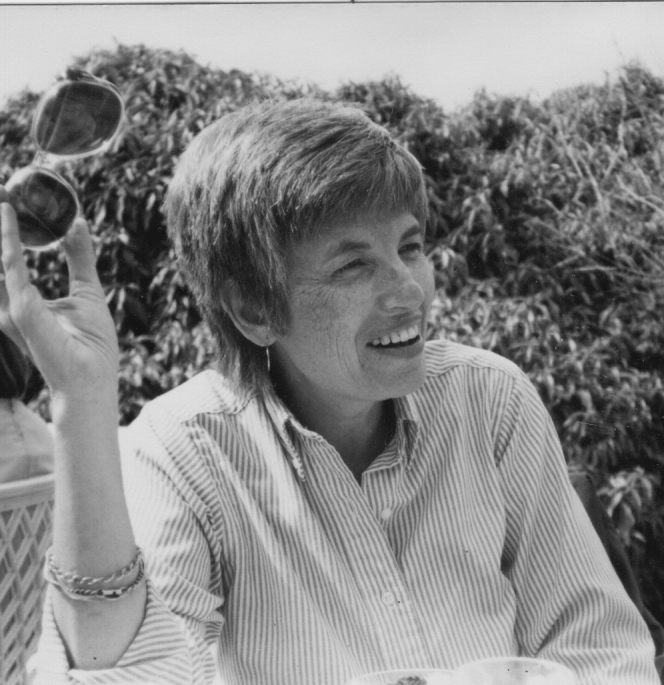
Martha Mednick
Birth:
1929
Death:
2020
Training Location(s):
PhD, Northwestern University (1955)
MA, City College of New York (1952)
BS, City College of New York (1950)
Primary Affiliation(s):
Howard University (1968-1995)
Psychology’s Feminist Voices Oral History Interview:
Career Focus:
Psychology of women; gender, race, social class and achievement orientation.
Biography
Born to working-class, Jewish, immigrant parents March 31, 1929 in New York City, Martha Mednick chose to study psychology in part because it was a practical degree that could lead to a job. Despite the fact that she has been described by her colleague Rhoda Unger as one of the most influential people in developing a psychology of women, Mednick describes becoming a psychologist as an "accident".
She began her graduate training at the City College of New York (CCNY) in 1946. CCNY was the perfect school for Mednick, as it was more affordable than other institutions and it was close to home. Her parents could not imagine their daughter straying too far from home - "it wasn't what daughters do". As the first generation in her family to pursue post-secondary education, Mednick remembers feeling timid and not having the guidance or advice other students might have had. The only advice her mother ever gave her was to major in a discipline that would get her a job. Her mother and father immigrated to America as young teenagers, entering straight into the workforce. They knew the importance of being employable.
When Mednick studied at CCNY just after WWII, there were very few other women. The majority of students were married, male veterans in their mid-20s. Majoring in education with a specialization in psychology, Mednick completed her degree and became a licensed teacher in New York City. She continued to study at CCNY in the then male-dominated field of school psychology and graduated the following winter with a Bachelor of Science. To her mother's distress, Mednick did not attend her graduation and was busy planning a spring wedding. Mednick is the first to admit that she married "too young", but it was what you did. She recalls:
"Everybody did it. It's also after World War II, it was in the '50s. I was close to a few women in high school, they didn't even go to college, they were just waiting for their boyfriends to come home so that they could get married and start a life. You know, so, I was really very unusual doing what I did."
Following their wedding, Mednick and her husband moved west to the University of Oregon. While her husband pursued his studies, Mednick worked, took courses, and braved the ups and downs of newly married life. They then moved to Northwestern University in the midwest, where Mednick completed her Master's and Doctorate degrees. Her research was very experimental. Mednick completed internships at two Veteran's Hospitals at a time before psychotropic drugs, and she recalls that the tension between psychologists and psychiatrics was thick.
Following her dissertation Mednick spent time supporting her husband and "did not make a stink" about her own career. She followed him to Harvard where she worked in B. F. Skinner's laboratory while she was pregnant with her first daughter. After her pregnancy she spent a year at home with her daughter, and moved a few more times with her husband. By 1964, they were in Michigan, they divorced, and Mednick's career began to blossom. While teaching part-time in Michigan a colleague mentioned that Howard University in Washington, DC was developing a PhD program and she was asked to join the faculty.
By the winter of 1968 Mednick was in a tenure-track position at Howard. She became familiar with the women's movement through a student. This shifted the way she approached psychology and led her to seek change in the discipline. Howard was slow to offer a psychology of women course, and Mednick first taught the course at a Catholic university.
In 1972 Mednick became involved with the Committee on Women in Psychology of the American Psychological Association. She was an instrumental figure in the founding of Division 35, now the Society for the Psychology of Women. Her published research has focused on the influence of gender, class, and race on achievement motivation. She has consistently argued that feminist psychologists need to acknowledge their ideological and political goals in order to enact meaningful change through their research and practice. She also served as president of the Society for the Psychological Study of Social Issues (SPSSI). She served as co-editor (with Sandra Tangri) of the first issue of SPSSI's Journal of Social Issues on the psychology of women. Their 1972 issue was entitled "New Perspectives on Women."
Now retired and dividing her time between Washington, DC and Cape Cod, Massachusetts, Mednick remains active in professional organizations such as Psychologists for Social Responsibility. While Mednick describes her dedication to psychology as an "accident", it is no accident that she has been instrumental in the field. Her passion and dedication to social responsibility has formed her reputation as a pioneer of the psychology of women.
Dr. Martha Tamara (Schuch) Mednick died August 16th, 2020 after a prolonged battle with cancer in Rochester, New York.
by Jenna MacKay (2010) updated (2020)
To cite this article, see Credits
Selected Works
By Martha Mednick
Mednick, M. T., Tangri, S. S. & Hoffman, L. W. (Eds.).(1975). Women and achievement. Oxford: Hemisphere.
Mednick, M. T. & Puryear, G. R. (1976). Race and fear of success in college women: 1968-1971. Journal of Consulting and Clinical Psychology, 44, 787-789.
Murray, S. R. & Mednick, M. T. (1977). Black women's achievement orientation: Motivation and cognitive factors. Psychology of Women Quarterly, 1, 247-259.
Mednick, M. T. S. (1978). Now we are four: What should we be when we grow up?. Psychology of Women Quarterly, 3, 123-138.
Mednick, M. T. (1984). SPSSI, advocacy for social change, and the future: A historical look. Journal of Social Issues, 40, 159-177.
Bailey, C. R. & Mednick, M. T. (1987). Career aspiration in Black college women: An examination of performance and social self-esteem. Women & Therapy, 6, 65-75.
Mednick, M. T. (1988). Single mothers: A review and critique of current research. Applied Social Psychology Annual, 7, 184-201.
Carr, P. G. & Mednick, M. T. (1989). Sex role sociolization and the development of achievement motivation in Black preschool children. Sex Roles, 18, 169-180.
Mednick, M. T. (1989). On the politics of psychological constructs: Stop the bandwagon, I want to get off. American Psychologist, 44, 1118-1123.
Mednick, M. T. (1991). Currents and futures in American feminist psychology: State of the art revisited. Psychology of Women Quarterly, 15, 611-621.
About Martha Mednick
Mednick, M. T. (1988). Martha T. Mednick, 1929-. In A. N. O'Connell & N. Felipe Russo, Models of achievement: Reflections of eminent women in psychology, Volume 2 (pp. 245-259). Hillsdale, NJ: Erlbaum.
Stevens, G. & Gardner, S. (1982). A spokesperson for the new feminist psychology: Martha Tamara Mednick (1929-). In G. Stevens and S. Gardner, The women of psychology, Volume II: Expansion and refinement (pp. 220-221). Cambridge, MA: Schenkman Publishing Company.
Photo Gallery

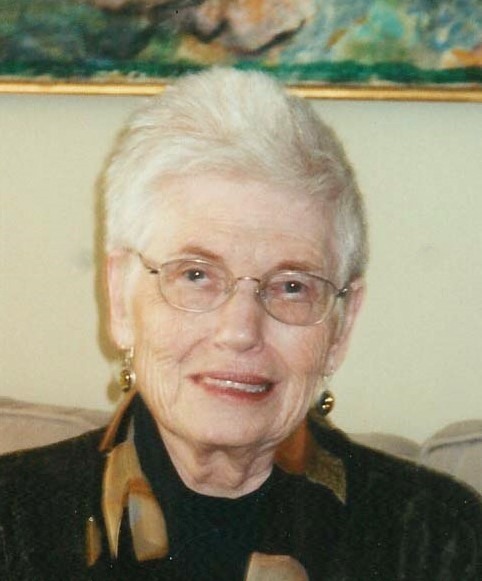
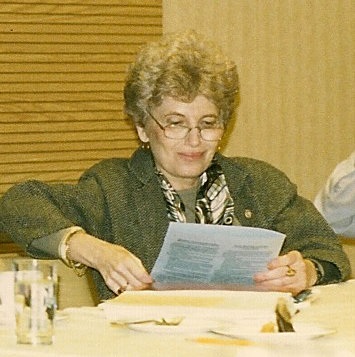
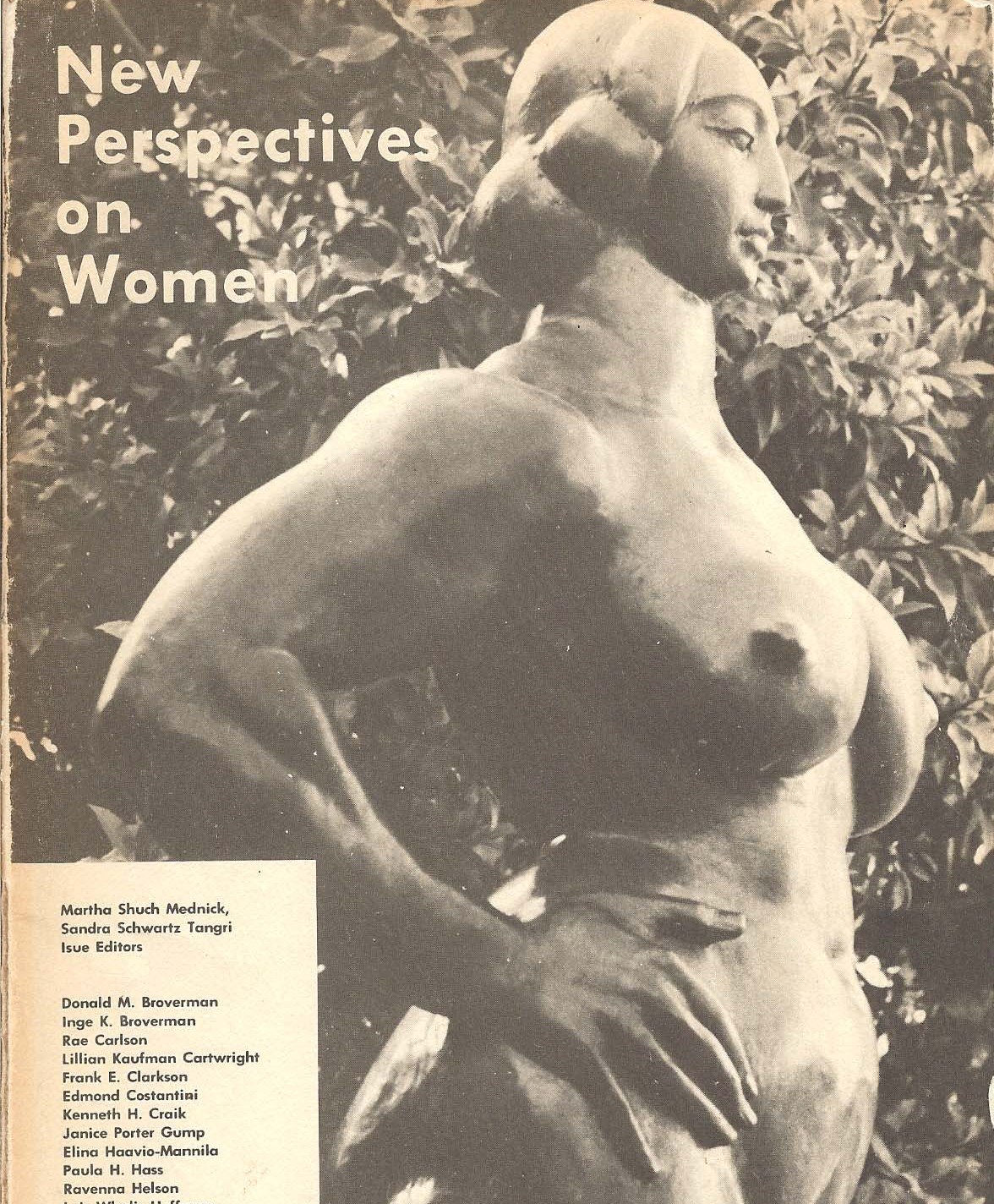
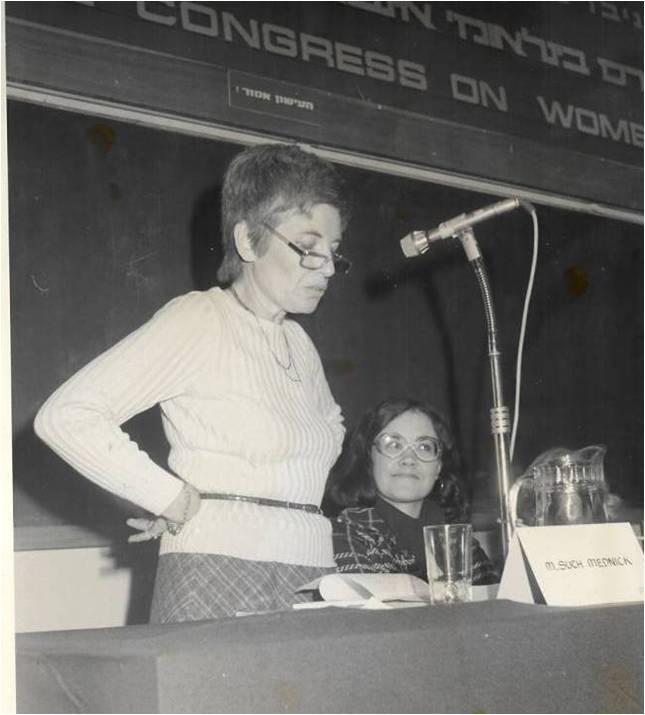

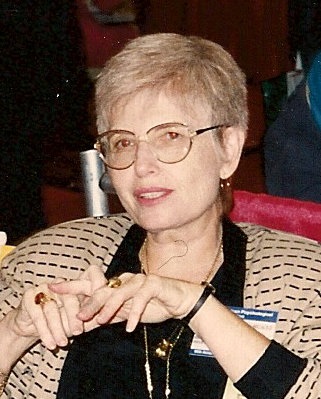

Martha Mednick
Birth:
1929
Death:
2020
Training Location(s):
PhD, Northwestern University (1955)
MA, City College of New York (1952)
BS, City College of New York (1950)
Primary Affiliation(s):
Howard University (1968-1995)
Psychology’s Feminist Voices Oral History Interview:
Career Focus:
Psychology of women; gender, race, social class and achievement orientation.
Biography
Born to working-class, Jewish, immigrant parents March 31, 1929 in New York City, Martha Mednick chose to study psychology in part because it was a practical degree that could lead to a job. Despite the fact that she has been described by her colleague Rhoda Unger as one of the most influential people in developing a psychology of women, Mednick describes becoming a psychologist as an "accident".
She began her graduate training at the City College of New York (CCNY) in 1946. CCNY was the perfect school for Mednick, as it was more affordable than other institutions and it was close to home. Her parents could not imagine their daughter straying too far from home - "it wasn't what daughters do". As the first generation in her family to pursue post-secondary education, Mednick remembers feeling timid and not having the guidance or advice other students might have had. The only advice her mother ever gave her was to major in a discipline that would get her a job. Her mother and father immigrated to America as young teenagers, entering straight into the workforce. They knew the importance of being employable.
When Mednick studied at CCNY just after WWII, there were very few other women. The majority of students were married, male veterans in their mid-20s. Majoring in education with a specialization in psychology, Mednick completed her degree and became a licensed teacher in New York City. She continued to study at CCNY in the then male-dominated field of school psychology and graduated the following winter with a Bachelor of Science. To her mother's distress, Mednick did not attend her graduation and was busy planning a spring wedding. Mednick is the first to admit that she married "too young", but it was what you did. She recalls:
"Everybody did it. It's also after World War II, it was in the '50s. I was close to a few women in high school, they didn't even go to college, they were just waiting for their boyfriends to come home so that they could get married and start a life. You know, so, I was really very unusual doing what I did."
Following their wedding, Mednick and her husband moved west to the University of Oregon. While her husband pursued his studies, Mednick worked, took courses, and braved the ups and downs of newly married life. They then moved to Northwestern University in the midwest, where Mednick completed her Master's and Doctorate degrees. Her research was very experimental. Mednick completed internships at two Veteran's Hospitals at a time before psychotropic drugs, and she recalls that the tension between psychologists and psychiatrics was thick.
Following her dissertation Mednick spent time supporting her husband and "did not make a stink" about her own career. She followed him to Harvard where she worked in B. F. Skinner's laboratory while she was pregnant with her first daughter. After her pregnancy she spent a year at home with her daughter, and moved a few more times with her husband. By 1964, they were in Michigan, they divorced, and Mednick's career began to blossom. While teaching part-time in Michigan a colleague mentioned that Howard University in Washington, DC was developing a PhD program and she was asked to join the faculty.
By the winter of 1968 Mednick was in a tenure-track position at Howard. She became familiar with the women's movement through a student. This shifted the way she approached psychology and led her to seek change in the discipline. Howard was slow to offer a psychology of women course, and Mednick first taught the course at a Catholic university.
In 1972 Mednick became involved with the Committee on Women in Psychology of the American Psychological Association. She was an instrumental figure in the founding of Division 35, now the Society for the Psychology of Women. Her published research has focused on the influence of gender, class, and race on achievement motivation. She has consistently argued that feminist psychologists need to acknowledge their ideological and political goals in order to enact meaningful change through their research and practice. She also served as president of the Society for the Psychological Study of Social Issues (SPSSI). She served as co-editor (with Sandra Tangri) of the first issue of SPSSI's Journal of Social Issues on the psychology of women. Their 1972 issue was entitled "New Perspectives on Women."
Now retired and dividing her time between Washington, DC and Cape Cod, Massachusetts, Mednick remains active in professional organizations such as Psychologists for Social Responsibility. While Mednick describes her dedication to psychology as an "accident", it is no accident that she has been instrumental in the field. Her passion and dedication to social responsibility has formed her reputation as a pioneer of the psychology of women.
Dr. Martha Tamara (Schuch) Mednick died August 16th, 2020 after a prolonged battle with cancer in Rochester, New York.
by Jenna MacKay (2010) updated (2020)
To cite this article, see Credits
Selected Works
By Martha Mednick
Mednick, M. T., Tangri, S. S. & Hoffman, L. W. (Eds.).(1975). Women and achievement. Oxford: Hemisphere.
Mednick, M. T. & Puryear, G. R. (1976). Race and fear of success in college women: 1968-1971. Journal of Consulting and Clinical Psychology, 44, 787-789.
Murray, S. R. & Mednick, M. T. (1977). Black women's achievement orientation: Motivation and cognitive factors. Psychology of Women Quarterly, 1, 247-259.
Mednick, M. T. S. (1978). Now we are four: What should we be when we grow up?. Psychology of Women Quarterly, 3, 123-138.
Mednick, M. T. (1984). SPSSI, advocacy for social change, and the future: A historical look. Journal of Social Issues, 40, 159-177.
Bailey, C. R. & Mednick, M. T. (1987). Career aspiration in Black college women: An examination of performance and social self-esteem. Women & Therapy, 6, 65-75.
Mednick, M. T. (1988). Single mothers: A review and critique of current research. Applied Social Psychology Annual, 7, 184-201.
Carr, P. G. & Mednick, M. T. (1989). Sex role sociolization and the development of achievement motivation in Black preschool children. Sex Roles, 18, 169-180.
Mednick, M. T. (1989). On the politics of psychological constructs: Stop the bandwagon, I want to get off. American Psychologist, 44, 1118-1123.
Mednick, M. T. (1991). Currents and futures in American feminist psychology: State of the art revisited. Psychology of Women Quarterly, 15, 611-621.
About Martha Mednick
Mednick, M. T. (1988). Martha T. Mednick, 1929-. In A. N. O'Connell & N. Felipe Russo, Models of achievement: Reflections of eminent women in psychology, Volume 2 (pp. 245-259). Hillsdale, NJ: Erlbaum.
Stevens, G. & Gardner, S. (1982). A spokesperson for the new feminist psychology: Martha Tamara Mednick (1929-). In G. Stevens and S. Gardner, The women of psychology, Volume II: Expansion and refinement (pp. 220-221). Cambridge, MA: Schenkman Publishing Company.







